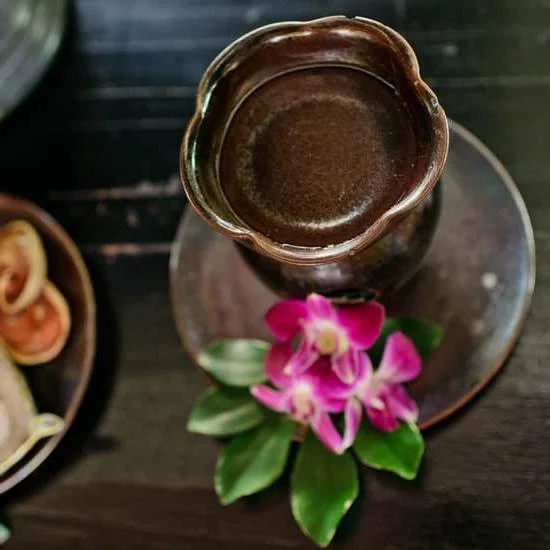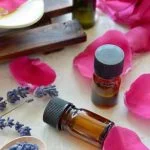Aromatherapy is a holistic healing practice that utilizes the power of essential oils to promote physical and emotional well-being. With their potent scents and therapeutic properties, these oils have been used for centuries to treat various ailments, induce relaxation, and uplift the spirit.
In the realm of aromatherapy, cinnamon has emerged as a popular essential oil with numerous benefits. From its warm and comforting aroma to its potential health-promoting properties, cinnamon essential oil is valued for its versatility and effectiveness in enhancing both mental and physical wellness.
Cinnamon, derived from the inner bark of trees belonging to the Cinnamomum genus, has a rich history in aromatherapy and other healing practices. Ancient cultures such as the Egyptians, Romans, and Chinese recognized the medicinal qualities of cinnamon and incorporated it into their traditional remedies for an array of ailments. Whether used topically, inhaled through steam or vaporization, or even ingested in small amounts under proper guidance, cinnamon holds great potential for improving overall health.
This article aims to delve deeper into the world of cinnamon aromatherapy by exploring its origins, how it works within the body, and the wide range of health benefits it can provide. We will also touch upon its impact on mental and emotional well-being as well as its potential physical applications.
By understanding what cinnamon aromatherapy can offer us, we can harness its powers to enhance our everyday lives naturally. So let’s embark on this aromatic journey together and discover just how beneficial cinnamon can be in promoting our overall health and wellness.
The Origins of Cinnamon Aromatherapy
Cinnamon has a long history of use in aromatherapy and has been valued for its therapeutic properties by ancient cultures around the world. The use of cinnamon dates back thousands of years, with evidence suggesting that it was used by the Egyptians, Greeks, and Romans for various purposes.
In ancient Egypt, cinnamon was highly prized and considered a luxury spice. It was used in religious rituals, embalming practices, and as a perfume. The Egyptians believed that cinnamon had purifying and protective properties, and they even used it to preserve their mummies. In Greece and Rome, cinnamon was also revered for its medicinal qualities and was used to treat a range of ailments.
Cinnamon’s use in aromatherapy can also be traced back to traditional Chinese medicine and Ayurveda, the ancient healing system of India. In both of these systems, cinnamon is valued for its warming and stimulating properties. It is believed to have a balancing effect on the body’s energies and is commonly used to improve circulation, aid digestion, relieve pain, and boost immunity.
Throughout history, cinnamon has been recognized for its therapeutic benefits in herbal medicine as well. Its antimicrobial properties make it useful for fighting infections, while its anti-inflammatory effects can help reduce pain and inflammation in conditions like arthritis. Additionally, cinnamon is known to support digestive health by promoting healthy digestion and alleviating symptoms such as indigestion or bloating.
Overall, the historical significance of cinnamon in aromatherapy highlights the enduring recognition of its healing potential by different cultures throughout time. Today, this ancient knowledge continues to inform our understanding of how cinnamon essential oil can be effectively utilized for physical and emotional well-being through aromatherapy practices.
How Cinnamon Aromatherapy Works
Cinnamon aromatherapy works by harnessing the power of the chemical constituents found in cinnamon essential oil. These compounds interact with the body to promote healing and relaxation. The main chemical constituents present in cinnamon essential oil are cinnamaldehyde, eugenol, and linalool.
Cinnamaldehyde is responsible for the warm and spicy aroma of cinnamon essential oil. It has been found to have antimicrobial properties, making it effective against various types of bacteria and fungi. This makes cinnamon aromatherapy beneficial for supporting immune health and warding off infections.
Eugenol is another key compound in cinnamon essential oil. It has analgesic (pain-relieving) properties and can help alleviate muscle aches, joint pain, and headaches. Additionally, eugenol has anti-inflammatory effects that can reduce inflammation and swelling in conditions such as arthritis or respiratory issues.
Linalool is known for its calming and sedative effects on the nervous system. It can help relax the mind and body, reducing stress, anxiety, and promoting better sleep. This makes cinnamon aromatherapy particularly useful for those seeking emotional balance and relief from daily stresses.
There are several methods of using cinnamon aromatherapy depending on individual preferences and needs. One common method is diffusing cinnamon essential oil using an aroma diffuser or a nebulizer. This allows the scent of cinnamon to fill the room, creating a soothing atmosphere.
Topical application is another way to experience the benefits of cinnamon aromatherapy. However, it is important to dilute the essential oil properly before applying it to the skin to avoid any potential sensitivity or irritation. A safe dilution ratio is usually 1-2% (5-10 drops per ounce of carrier oil). Cinnamon can be added to massage oils or creams for targeted relief from muscular tension or pain.
By understanding how cinnamon aromatherapy works at a chemical level and exploring different methods of application, individuals can effectively incorporate this powerful essential oil into their self-care routines.
Health Benefits of Cinnamon Aromatherapy
Cinnamon aromatherapy offers a wide range of health benefits, making it a popular choice among individuals seeking natural remedies for various conditions. Scientific research has shown that cinnamon essential oil possesses potent medicinal properties that can improve overall well-being. Here are some of the specific health conditions that cinnamon aromatherapy can help with:
- Digestive Issues: Cinnamon has long been used to alleviate digestive discomfort and promote healthy digestion. It can help relieve symptoms such as bloating, gas, indigestion, and stomach cramps. The active compounds in cinnamon essential oil have antimicrobial and anti-inflammatory effects, which can aid in balancing gut bacteria and reducing inflammation in the digestive tract.
- Respiratory Problems: Cinnamon aromatherapy is beneficial for respiratory conditions including coughs, colds, bronchitis, and sinus congestion. The warming properties of cinnamon help to clear the airways and loosen mucus, providing relief from respiratory symptoms. Diffusing cinnamon essential oil or using it topically on the chest can help soothe coughing, reduce nasal congestion, and ease breathing.
- Pain Management: Cinnamon essential oil has analgesic properties that make it effective in relieving pain. It can be used topically to reduce headaches, muscle aches, joint pain, and menstrual cramps. Massaging diluted cinnamon oil onto the affected areas helps stimulate blood circulation and reduce inflammation.
Scientific studies have supported the efficacy of cinnamon aromatherapy in addressing these health issues. For example, a study published in the Journal of Medicinal Food found that cinnamon essential oil exhibited strong antimicrobial activity against common pathogens responsible for respiratory infections. Another study published in Phytotherapy Research showed that cinnamon essential oil significantly reduced pain intensity in patients with primary dysmenorrhea (painful menstrual periods).
Testimonials from individuals who have incorporated cinnamon aromatherapy into their wellness routine further validate its positive effects on overall health and well-being. Many people have reported feeling more energized, experiencing relief from digestive discomfort, and finding an improvement in their respiratory symptoms after using cinnamon aromatherapy.
Mental and Emotional Benefits
Mood Enhancement and Stress Reduction
Cinnamon aromatherapy has been found to have positive effects on mood enhancement and stress reduction. The aroma of cinnamon essential oil stimulates the brain’s limbic system, which is responsible for emotions and memories. When inhaled, the scent of cinnamon can help uplift the mood, increase feelings of happiness, and reduce symptoms of stress and anxiety. This makes cinnamon aromatherapy a valuable tool for individuals seeking a natural remedy to improve their overall well-being.
Many individuals have reported experiencing a sense of calmness and relaxation after using cinnamon aromatherapy. The warm and comforting scent of cinnamon can create a soothing environment that helps promote relaxation and relieve tension. Some people find that inhaling the aroma of cinnamon essential oil before bedtime can even improve sleep quality by providing a sense of tranquility.
Cognitive Function and Memory Improvement
In addition to its mood-enhancing properties, cinnamon aromatherapy has also been shown to have a positive impact on cognitive function and memory. Studies have suggested that the scent of cinnamon may improve cognitive performance, including attention span, focus, and memory recall. This could be particularly beneficial for individuals who are studying or performing mentally demanding tasks.
Furthermore, cinnamon has been found to stimulate blood flow in the brain, which can enhance cognitive abilities. Increased blood circulation can deliver more oxygen to the brain cells, promoting optimal functioning. Additionally, some research has indicated that the compounds present in cinnamon essential oil may help protect against age-related cognitive decline.
Personal Stories Highlighting Emotional Benefits
There are numerous personal stories highlighting the emotional benefits individuals have experienced through cinnamon aromatherapy. Many people have shared how incorporating this therapy into their daily routine has helped them manage stress levels more effectively and maintain a positive mindset.
One individual mentioned how they used to struggle with anxiety attacks but since regularly diffusing cinnamon essential oil in their home, they have noticed a significant reduction in their anxiety symptoms. Another individual shared their experience of using cinnamon aromatherapy during grieving and how it helped them find solace and provided emotional support during a difficult time.
These personal stories demonstrate the potential impact that cinnamon aromatherapy can have on an individual’s emotional well-being, highlighting its value as a natural and holistic approach to improving mental health.
Physical Benefits of Cinnamon Aromatherapy
Alleviating Pain, Inflammation, and Muscular Tension
One of the significant physical benefits of cinnamon aromatherapy is its ability to alleviate pain, inflammation, and muscular tension. Cinnamon essential oil contains powerful compounds such as cinnamaldehyde and eugenol, which possess anti-inflammatory and analgesic properties. These compounds can target inflamed areas in the body and help reduce pain and swelling.
Research has shown that cinnamon essential oil can be particularly effective in easing discomfort caused by conditions like arthritis, joint pain, and muscle soreness. When used in aromatherapy, cinnamon oil can be diffused into the air or applied topically after proper dilution with a carrier oil. For topical application, it is advisable to perform a patch test before using cinnamon oil on larger areas of the body to ensure there is no adverse reaction.
Specific Conditions that Cinnamon Aromatherapy Can Help With
In addition to its general pain-relieving properties, cinnamon aromatherapy has been found to offer relief for specific health conditions. Individuals suffering from respiratory issues such as bronchitis or sinusitis may benefit from inhaling cinnamon essential oil through steam inhalation or a diffuser. The antimicrobial properties of cinnamon can help clear congestion and promote easier breathing.
Furthermore, research suggests that cinnamon aromatherapy may provide relief for individuals with digestive problems like indigestion or bloating. The compounds present in cinnamon essential oil can aid digestion by stimulating the production of digestive enzymes and reducing inflammation in the gastrointestinal tract.
To successfully incorporate cinnamon aromatherapy for these specific conditions, it is recommended to consult with a healthcare professional for personalized guidance on dosage and usage.
Case Studies Showcasing Positive Physical Effects of Cinnamon Aromatherapy
Several case studies illustrate the positive physical effects of using cinnamon aromatherapy for various health conditions. For example, a study published in the Journal of Natural Products examined the impact of cinnamon essential oil on individuals with rheumatoid arthritis. The participants reported a reduction in joint pain and stiffness after using cinnamon aromatherapy for three weeks.
Another study conducted at a university hospital explored the effects of cinnamon essential oil on individuals with chronic migraines. The results revealed that inhaling cinnamon vapors during a migraine attack resulted in decreased headache intensity and shorter duration of symptoms.
These case studies support the growing body of scientific evidence demonstrating the therapeutic potential of cinnamon aromatherapy for physical well-being. However, it is important to note that while these studies show promising results, more research is needed to fully understand the extent and specific mechanisms behind these physical benefits.
Safety Precautions and Dosage
When using cinnamon essential oil for aromatherapy, it is crucial to take certain safety precautions to ensure the well-being of individuals and avoid any adverse effects. Cinnamon is a potent essential oil, and when used improperly, it can irritate the skin or mucous membranes and cause other unwanted reactions. Therefore, it is important to follow guidelines for safe usage.
Firstly, before using cinnamon essential oil topically, it is crucial to dilute it properly. Undiluted cinnamon oil may cause skin irritation or sensitization, especially for those with sensitive skin. It is recommended to use a carrier oil such as jojoba oil or coconut oil in a 3-5% dilution ratio (approximately 3-5 drops of cinnamon essential oil per teaspoon of carrier oil).
Additionally, individuals should perform a patch test before applying cinnamon essential oil on larger areas of the body. Apply a small amount of diluted cinnamon essential oil on the inner forearm and wait for 24 hours to observe any adverse reactions. If redness, itching, or irritation occurs during this period, it is best to avoid using cinnamon essential oil altogether.
Furthermore, while diffusing cinnamon essential oil can be beneficial in creating an inviting aroma and promoting relaxation, it is important not to overdo it. Excessive inhalation of concentrated cinnamon vapor may cause respiratory issues or symptoms like coughing or shortness of breath. It is advisable to diffuse for 30 minutes at a time with breaks in between.
| Application | Dilution Ratio | Recommended Dosage |
|---|---|---|
| Topical Application | 3-5% | 3-5 drops of cinnamon essential oil per teaspoon of carrier oil |
| Aromatherapy Diffusion | N/A | 30 minutes of diffusion with breaks in between |
By following these safety precautions and dosage recommendations, individuals can safely and effectively incorporate cinnamon aromatherapy into their daily life. As with any essential oil or therapeutic practice, it is always advisable to consult with a healthcare professional, especially if you have any pre-existing medical conditions or are pregnant or breastfeeding.
Next, we will explore how readers can incorporate cinnamon aromatherapy into their home environment with step-by-step instructions on usage and DIY recipes for blends and diffuser combinations.
How to Use Cinnamon Aromatherapy at Home
Cinnamon aromatherapy can be easily incorporated into your daily life, allowing you to experience its many benefits in the comfort of your own home. Here are some step-by-step instructions on how to use cinnamon aromatherapy effectively:
- Diffusing Cinnamon Essential Oil: One of the most popular methods of using cinnamon aromatherapy is by diffusing the essential oil. This allows the aroma to fill the air and provide its therapeutic effects. Simply add a few drops of cinnamon essential oil to a diffuser along with water, following the manufacturer’s instructions. Turn on the diffuser and enjoy the comforting scent of cinnamon throughout your home.
- Topical Application: Cinnamon essential oil can also be applied topically for targeted relief or relaxation. However, it is important to note that cinnamon essential oil is highly potent and should be properly diluted before applying to the skin.
Mix a few drops of cinnamon essential oil with a carrier oil, such as coconut or almond oil, before massaging onto desired areas. This can help alleviate muscle tension, joint pain, or even promote healthy digestion when applied gently over the abdomen. - Blending with Other Oils: Cinnamon essential oil blends well with many other essential oils, enhancing their benefits and creating unique aromatic profiles. Experiment with creating your own blend by combining cinnamon with oils like orange, clove, ginger, or lavender. You can use these blends in a diffuser or dilute them for topical application.
- DIY Recipes: Get creative and incorporate cinnamon aromatherapy into homemade products such as candles, soaps, or bath salts. These DIY projects not only allow you to enjoy the benefits of cinnamon but also make wonderful gifts for friends and loved ones.
When using cinnamon aromatherapy at home, it is crucial to select high-quality cinnamon essential oil from reputable sources. Look for pure and organic options that have been tested for quality and purity.
| Method | Description |
|---|---|
| Diffusing Cinnamon Essential Oil | Add a few drops to a diffuser along with water to fill the air with the aroma. |
| Topical Application | Dilute cinnamon essential oil with a carrier oil before applying to the skin for targeted relief or relaxation. |
| Blending with Other Oils | Create unique blends by combining cinnamon essential oil with other oils for enhanced benefits and aromatic profiles. |
| DIY Recipes | Incorporate cinnamon aromatherapy into homemade products like candles, soaps, or bath salts. |
By following these instructions and exploring different methods of using cinnamon aromatherapy at home, you can fully harness its therapeutic effects and enjoy a natural and uplifting environment. So why not give it a try and experience the wonders of cinnamon aromatherapy firsthand?
Conclusion
In conclusion, cinnamon aromatherapy offers a multitude of benefits for both physical and mental well-being. From its ancient origins to its modern-day applications, cinnamon has proven its therapeutic value across various cultures and time periods. The chemical constituents in cinnamon essential oil interact with the body to promote healing, relaxation, and improved mood.
Scientific research supports the efficacy of cinnamon essential oil, while testimonials from individuals who have experienced its benefits provide further validation. Whether it is alleviating pain and inflammation, improving cognitive function, reducing stress and anxiety, or addressing specific health conditions such as arthritis or respiratory issues, cinnamon aromatherapy has shown promising results.
It is important to exercise caution when using cinnamon essential oil by following safety precautions and dosage guidelines. However, with proper use and a selection of high-quality oil, individuals can easily incorporate cinnamon aromatherapy into their daily lives. From DIY recipes to diffuser combinations, there are endless possibilities for experiencing the wonders of this natural remedy.
In a world where self-care is increasingly valued, cinnamon aromatherapy serves as a reminder of the power of natural remedies. By taking the time to explore different therapeutic options such as this one, we can proactively prioritize our own well-being. So why not give cinnamon aromatherapy a try and experience its wonders firsthand? Improve your overall health and enhance your mood through the heavenly scent and healing properties of cinnamon essential oil – you won’t be disappointed.
Frequently Asked Questions
What are the spiritual benefits of cinnamon essential oils?
Cinnamon essential oil is believed to offer several spiritual benefits. It is often associated with enhancing focus and concentration, which can be beneficial during meditation or other spiritual practices.
The warm and comforting scent of cinnamon oil is also known to evoke feelings of joy, positivity, and even sensuality, making it a popular choice for promoting emotional well-being. Additionally, some people believe that the spicy aroma of cinnamon oil can help in opening up the mind and promoting spiritual growth by creating a sense of connectedness to the universe.
Does cinnamon essential oil make you sleepy?
While cinnamon essential oil is known for its stimulating properties, such as increasing alertness and boosting energy levels, it is not typically associated with causing sleepiness. In fact, the opposite may be true due to its invigorating scent.
However, individual responses to aromatherapy can vary, so some people may have different reactions to cinnamon essential oil. It’s always a good idea to test how your body responds to any essential oil before using it at bedtime or when relaxation is desired.
What is cinnamon and clove aromatherapy good for?
Cinnamon and clove aromatherapy has been known for its various therapeutic benefits. These two aromatic spices are frequently combined in aromatherapy blends due to their complementary properties. When used together, cinnamon and clove oils are believed to possess antimicrobial properties that can help purify the air and support respiratory health.
They are also appreciated for their warming effect on the body and their ability to provide soothing relief from muscle tension or discomfort. Additionally, the rich and comforting fragrance of these oils has been associated with alleviating stress and anxiety while promoting relaxation and an overall sense of well-being.

Are you looking for a natural way to improve your health and wellbeing?
If so, aromatherapy may be the answer for you.





